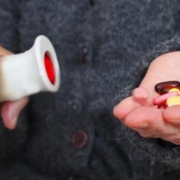Frequently Asked Questions about Functional Medicine Doctors
Functional Medicine Doctors Answer Your Questions
Functional medicine has gained significant attention in recent years as an innovative and effective approach to healthcare. By focusing on addressing the root causes of illness, with an aim to reverse or prevent illness, functional medicine promotes optimal wellness.
Due to the limitations of traditional medicine, more and more individuals are seeking alternatives to traditional medicine. As a result, functional medicine has emerged as a comprehensive and personalized approach to healthcare that emphasizes the interconnectedness of the body’s systems and the importance of addressing underlying imbalances.
Dr. Nishath Hakim, MD in Royal Oak is a board-certified Internist, a graduate of the University of Michigan and Wayne State Medical School, and is certified through the American Board of Integrative and Holistic Medicine (ABIHM). In this article, Dr. Hakim answers patients’ frequently asked questions about functional medicine and provide insights into its principles, benefits, and role in promoting overall health and well-being.
What is Functional Medicine?
Functional medicine is a patient-centered approach to healthcare that seeks to identify and address the underlying causes of disease rather than simply treating symptoms. Unlike conventional medicine, which often focuses on managing symptoms with medication or surgery, functional medicine views the body as a complex and interconnected system, where imbalances in one area can have far-reaching effects on overall health.
By taking a holistic approach to patient care, functional medicine doctors uncover the root causes of illness, such as poor nutrition, chronic stress, hormonal imbalances, environmental toxins, and genetic predispositions. Then they develop individualized treatment plans to restore balance and promote optimal health. This may involve a combination of dietary and lifestyle modifications, nutritional supplementation, hormone balancing, stress management techniques – as well as conventional medical treatments when necessary – to address patients’ specific health concerns.
How is Functional Medicine Different than Traditional Medicine?
Functional medicine differs from traditional medicine in several key ways. While conventional medicine typically focuses on managing symptoms with medication or surgery, functional medicine takes a more holistic approach by addressing the underlying causes of illness and promoting overall wellness.
Functional medicine doctors spend more time with patients, taking detailed medical histories, conducting comprehensive evaluations, implementing thorough testing (of the blood, hormones, gut, etc.), and exploring the interconnections between the patient’s various symptoms and their bodily systems.
Rather than relying solely on prescription drugs to treat symptoms, functional medicine emphasizes lifestyle modifications, dietary interventions, and natural therapies to support the body’s innate healing abilities and optimize health. By treating the whole person rather than just the symptoms, functional medicine offers a more personalized and comprehensive approach to healthcare that facilitates disease prevention and empowers patients to take an active role in their own well-being.
How Does Functional Medicine Help Prevent Disease?
Functional medicine places a strong emphasis on preventive care and strives to identify and address underlying imbalances before they manifest as full-blown disease. By taking a proactive approach to health, functional medicine doctors work with patients to optimize their lifestyle habits, improve nutrition, manage stress, balance hormones, and address other factors that contribute to overall health and well-being.
This may involve identifying and eliminating dietary triggers that contribute to inflammation, implementing stress management techniques to reduce the body’s stress response, and supporting the body’s detoxification pathways to eliminate harmful toxins. By addressing these underlying factors and supporting the body’s natural healing processes, functional medicine can help prevent the onset of chronic diseases such as diabetes, heart disease, erectile dysfunction, and autoimmune conditions, and promote long-term health and vitality.
What are The Healthcare Benefits of Functional Medicine?
The healthcare benefits of functional medicine are numerous and extend beyond simply treating symptoms to address the root causes of illness. By taking a personalized and integrative approach to patient care, functional medicine practitioners can help individuals achieve optimal health and well-being in a way that is tailored to their unique needs and preferences.
Functional medicine doctors emphasize the importance of patient education, empowering patients to take an active role in their own health and make informed decisions about their care. Additionally, functional medicine focuses on promoting overall wellness and antiaging rather than simply treating disease, helping individuals achieve a higher quality of life and improved vitality at every age.
By addressing the underlying factors that contribute to illness and supporting the body’s natural healing processes, functional medicine doctors offer a comprehensive and holistic approach to healthcare that can benefit individuals of all ages and health statuses.
What is the Origin of Functional Medicine?
Functional medicine traces its origins back to the early 1990s when a group of visionary physicians began to recognize the limitations of conventional medicine in addressing the complex and interconnected nature of chronic diseases. These pioneers, including Dr. Jeffrey Bland and Dr. Sidney Baker, sought to develop a new paradigm of healthcare that would shift the focus from treating symptoms to addressing the underlying causes of illness.
Drawing on principles from systems biology, biochemistry, and genetics, functional medicine emerged as a comprehensive and integrative approach to patient care that was designed to restore balance and promote optimal health. Since its inception, functional medicine has continued to evolve and grow, eventually gaining recognition as a leading approach to healthcare that emphasizes personalized and preventive care.
How Does Functional Medicine Address the Root Causes of Chronic Diseases?
Functional medicine takes a multi-faceted approach to addressing the root causes of chronic diseases by considering the unique genetic, environmental, and lifestyle factors that contribute to each individual’s health status. Rather than simply managing symptoms with medication, functional medicine doctors identify and correct underlying imbalances in the body’s systems, such as inflammation, hormonal dysregulation, and impaired detoxification pathways.
This usually involves comprehensive diagnostic testing to assess biomarkers of health and identify areas of dysfunction or imbalance in the body. By addressing these underlying factors and supporting the body’s natural healing processes, functional medicine can help individuals achieve long-term relief from chronic diseases and promote lasting health and vitality at every age.
Are Functional Medicine Doctors “Real” Physicians?
Yes, functional medicine doctors are fully licensed and board-certified physicians (medical doctors) who have undergone rigorous medical training and education. Functional medicine is not a separate medical specialty but rather an approach to patient care that can be integrated into other medical disciplines, including family medicine, internal medicine, and women’s and men’s medicine.
Functional medicine doctors, such as Dr. Nishath Hakim, MD, have gone to medical school and then receive additional training to diagnose and treat a wide range of acute and chronic health conditions using evidence-based interventions that prioritize the root causes of illness. By combining the principles of conventional medicine with a holistic and patient-centered approach, functional medicine doctors offer a comprehensive and personalized approach to healthcare that empowers individuals to take an active role in their own well-being.
Is Functional Medicine Safe?
Functional medicine emphasizes the use of natural therapies, lifestyle modifications, and preventive care to promote health and wellness, making it one of the safest and most effective approaches to health, vitality, and longevity. Functional medicine doctors prioritize patient safety and well-being, taking into account each individual’s unique health history, medical conditions, and treatment preferences when developing personalized treatment plans.
Functional medicine may also involve dietary supplements, herbal remedies, 100% natural plant-based bioidentical hormones, and other natural therapies, that are considered extremely safe when used appropriately under the guidance of a qualified functional medicine doctor.
Functional Medicine Doctor | Royal Oak
Functional medicine doctors like Dr. Nishath Hakim, MD, in Royal Oak, offer a comprehensive and integrative approach to healthcare that focuses on addressing the root causes of illness, preventing disease, and promoting optimal wellness. With its origins rooted in medical science, systems biology, and genetics, functional medicine takes a personalized and preventive approach to patient care, empowering individuals to take an active role in their own health and well-being.
If you are interested in a safe and effective alternative to conventional medicine that can help you achieve long-term relief from chronic diseases and prevent disease, schedule an appointment with functional medicine doctor Nishath Hakim, MD … and take the first step to lasting health and vitality.












